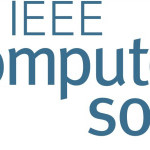- Industrie: Computer; Software
- Number of terms: 50628
- Number of blossaries: 0
- Company Profile:
Founded in 1946, the IEEE Computer Society is a professional organization for computing professionals. Based in Washington, DC, it's the largest of IEEE’s 38 societies organized under the IEEE Technical Activities Board. The IEEE Computer Society is dedicated to advancing the theory, practice, and ...
A system/software requirement that specifies a function that a system/software system or system/software component must be capable of performing. These are software requirements that define behavior of the system, that is, the fundamental process or transformation that software and hardware components of the system perform on inputs to produce outputs. Contrast with nonfunctional requirement.
Industry:Computer; Software
In project management, (1) A major unit of work to be completed in achieving the objectives of a software project. An activity has precise starting and ending dates, incorporates a set of tasks to be completed, consumes resources, and results in work products. An activity may contain tasks or other activities in a hierarchical manner. (2) A defined work that is part of a process lifecycle phase.
Industry:Computer; Software
The smallest unit of work subject to management accountability. A work task must be small enough to allow adequate planning and control of a software project, but large enough to avoid micro-management. The specification of work to be accomplished in completing a work task should be documented in a work package. Related work tasks should be grouped to form supporting processes and work activities.
Industry:Computer; Software
(1) A description of a system and its components (configuration items) at a particular period of time, and any approved updates to the baseline. (2) A work product that has been placed under formal configuration management. A baseline should be changed only through formal configuration management procedures. Some baselines may be project deliverables while others provide the basis for further work.
Industry:Computer; Software
A systematic qualitative or quantitative evaluation of software for undesirable outcomes resulting from the development or operation of a system. These outcomes may include injury, illness, death, mission failure, economic loss, property loss, environmental loss, or adverse social impact. This evaluation may include screening or analysis methods to categorize, eliminate, reduce, or mitigate hazards.
Industry:Computer; Software
Literally, a fee for renting money. Someone who borrows money from another is usually obligated to return the original amount borrowed plus some additional money. That additional money is the interest. The interest rate is a measure of the rental fee for money in terms of a percentage over some period. At 10 percent interest for a year, someone who borrows $100 is obligated to pay $110 back at the end of one year.
Industry:Computer; Software
Passive increases in the value of a capital asset. The term “passive” means that the change in value is due not to the owner’s active involvement but to other, external reasons. If a person buys a plot of land and the value increases, say, because of development in that area, the difference between the current value and the original basis cost (what it cost the owner to acquire the asset) is considered a capital gain.
Industry:Computer; Software
A review to determine the project status as it applies to project plans, schedules, budget, staffing, training, and so forth. The monetary expenditures are compared with the budget, and differences between the budget estimates and actual project expenditures are explained. The completion dates are compared with the master schedule, and differences between the scheduled completion dates and actual completion dates are explained.
Industry:Computer; Software
A software requirement that describes not what the software will do, but how the software will do it, for example, software performance requirements, software external interface requirements, software design constraints, and software quality attributes. Nonfunctional requirements are sometimes difficult to test; therefore, they are usually evaluated subjectively. Contrast with functional requirement. Sometime referred to as design constraints.
Industry:Computer; Software
A collection of work activities that supports the software development environment. Examples of supporting processes include software documentation, software quality assurance, software verification and validation, software configuration management, software reviews, audit processes, and problem resolution activities. . Supporting processes are to the development process as the organizational staff activities are to organizational line activities.
Industry:Computer; Software
